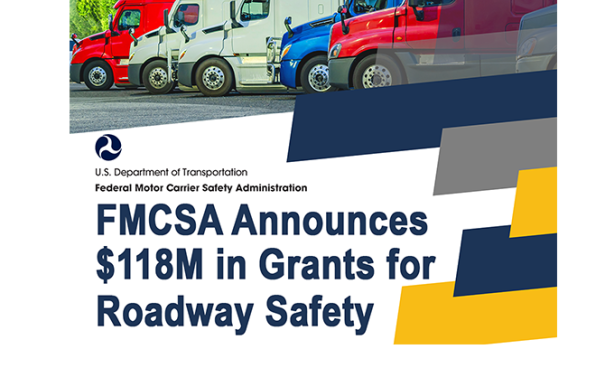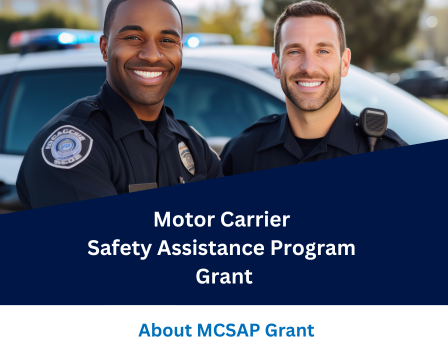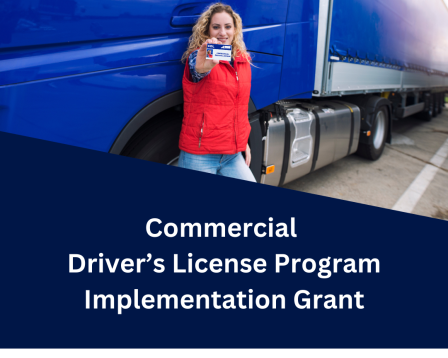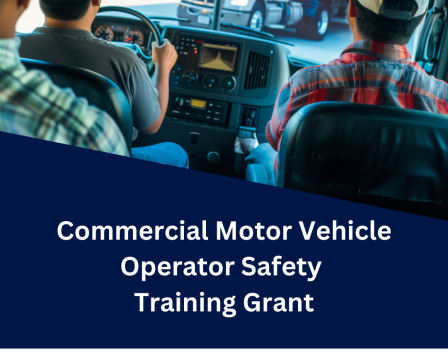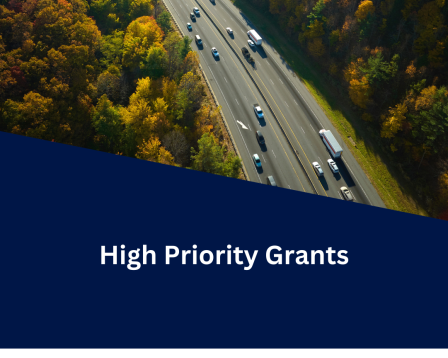Understanding U.S. Department of Transportation FMCSA Grants
Each year, FMCSA awards federal grants to states and other eligible entities in two categories: formula grants and discretionary grants. These grants support our mission to reduce crashes and hazardous materials incidents involving commercial trucks and buses, ultimately striving to achieve zero traffic fatalities.
FMCSA's Formula Grant - MCSAP
The Motor Carrier Safety Assistance Program (MCSAP) is a Federal formula grant program that provides financial assistance to States to reduce the number and severity of crashes involving CMVs and to promote the safe transportation of passengers and hazardous materials. It’s goal is to reduce CMV-involved crashes through consistent, uniform, and effective CMV safety programs which include driver/vehicle inspections, traffic enforcement, carrier audits/investigations, border enforcement, safety data improvements, and Performance and Registration Information Systems Management (PRISM).
FMCSA Invites State and Local Agencies to Apply for Discretionary Grants
FMCSA welcomes highway safety stakeholders to apply for discretionary grants for projects that support our safety mission. Through research, technology, and enforcement, FMCSA grantees use their knowledge and expertise to improve safety on our Nation’s roadways.
Who is Eligible for FMCSA Discretionary Grants?
Each grant program has its own goals, criteria, and eligibility requirements. Be sure to review each grant for specific details, but discretionary grants are available for a variety of entities, such as:
- Colleges and universities
- State and tribal governments
- Law enforcement
- Non-profit organizations
- And other eligible groups
Discretionary grants, also known as competitive grants, are awarded based on merit. Funding decisions are made at the agency's discretion, guided by the criteria detailed in the Notice of Funding Opportunity.
Please Note: Individuals are not eligible.
FMCSA's Discretionary Grant Opportunities

Get Started with the Grant Funding Process Anytime
Notice of Funding Opportunities (NOFOs) can be released anytime during the year. FMCSA strives to announce in the first quarter, but no later than the fourth quarter. Regardless of timing, preparing a compelling grant application can happen year-round.
The timeline for the grant process (known as the grants life cycle) is:
- Pre-Award Phase - FMCSA posts NOFO on grants.gov. Applicant applies for the appropriate funding opportunity. FMCSA thoroughly reviews the application(s).
- Award Phase - FMCSA makes award determination. If awarded, applicant signs a Notice of Grant Agreement through Grant Solutions. Applicant now becomes an awardee.
- Post Award - Awardee implements the activities of the grant and provide reports accordingly. Closeout activities are performed by the awardee and FMCSA.
FMCSA Grant Application Process
FMCSA grants adhere to an established federal grant funding process designed to serve America's public interest and ensure that competitions are open and fair.

Training and Resources for Grant Writers and Administrators
FMCSA offers webinars, funding conferences and other training resources to help you prepare your application, and if successful, manage your grant award. If your organization or agency is new to FMCSA grants, we have resources available in convenient downloadable PDF format.

Receiving FMCSA Discretionary Grant Funds
Visit the FMCSA's grants resource center to learn how grant funding is received and the process for awardees to implement their projects.
Research previous awardees and their projects, which contribute to the safe operation of CMVs across the Nation's highways and advance the deployment of technology for connected transportation information systems.

